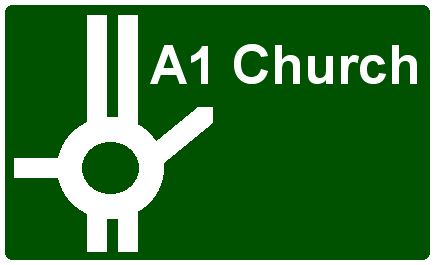
Lent 2 (Year B) Romans 4.13-25 & Mark 8.31-38 8 March 2009
There is an story I once read (and I wish I could remember where!) that wonders whether perhaps God had asked several other people if they would be the Father of his chosen people before he finally approached Abraham, and that each of the previous candidates had found God's calling too difficult: they did not want to leave their familiar land, they did not trust that God would and could do what he had offered to do for them; they could not face the responsibility of parenthood in their old age; they didn't want to take the risk and go out on a limb.
Abraham's calling was to walk by faith and not by sight. God promised him that he would be the father of a great nation, but it was some time before this promise became a reality. What must it have been like for Abraham to receive this great promise? What must it have been like for God to place his trust in one elderly couple and to risk everything as he started to nurture what would become his chosen people?
The parenthood of God meant seeing Israel as his child, not because Israel was strong or numerous, but because it was small and weak. The parenthood of Abraham and Sarah meant leaving everything they knew in order to embrace a future that they never thought they would have. Both paths of parenthood involved many risks. The God we believe in is a risk-taking God. We know this because he created a world that is so fragile, in which so much can go wrong and because he created people with the power to choose the right and the wrong. We know this because his chosen method of preparing for the redemption of the world and of all those people that he loved so much was to submit his Son to the risky process of human birth and infancy and to a human life as one of an oppressed race at a time of political upheaval and danger, and ultimately to ask that Son to suffer a real human death before rising again in triumph. We undoubtedly have a risk-taking God.
The gospel reading from Mark 8 speaks of the same risk. If you try and save your life, if you play it safe, if you stay in your comfort zone and never go out on a limb, you will end up with nothing. But if you risk everything for the love of Jesus and his gospel, then you will have life in all its fullness, complete with the danger and uncertainty that real living brings.
There are so many ways in which our own lives can embody this risk-taking. When we take the risk of caring for and nurturing someone or something, whether it is a garden, or a child, or anything else, when we invest something of ourselves in it, this is a creative and risky thing to do and it echoes the creativity and risk-taking of the parent-God we worship. Many of you will be starting to work on your gardens again for the first time this year. I know that when I plant a seed, or transfer a seedling from its pot to the open ground, or even if I buy a mature shrub and simply place it in my garden, I feel the reality of that risk: what if this bulb or seed does not grow? What if it grows but unnoticed and unappreciated? What if I find that I am not careful enough about watering the growing plant? What if the place I planted it gets too much or not enough sunlight? What if it gets knocked over or trampled? How does it feel, in this small way, to take the risk of nurturing something and watching to see if it will grow?
But think not only of the risk; think also of the possible knock-on effects if whatever it is that you have chosen to nurture does indeed grow and flourish. How does this process of risk and nurture become something that yields not just a plant, but also the grower and all who see and enjoy the garden? Taking a risk means being aware of the potential benefits and the potential costs and still being willing to step up to the mark and answer God's call and fulfil our God-given purpose. That's why this kind of faith is, as the epistle says, "reckoned as righteousness'. Reckoned as righteousness not just for Abraham in his remarkable trust and obedience, but also for us, who are still waiting to see in our own lives and in the life of the world many of the things that we hope and sincerely pray will come to fruition. May God always grant us the faith we need to grasp at the things we cannot see but which, in his goodness, he has set aside for us.